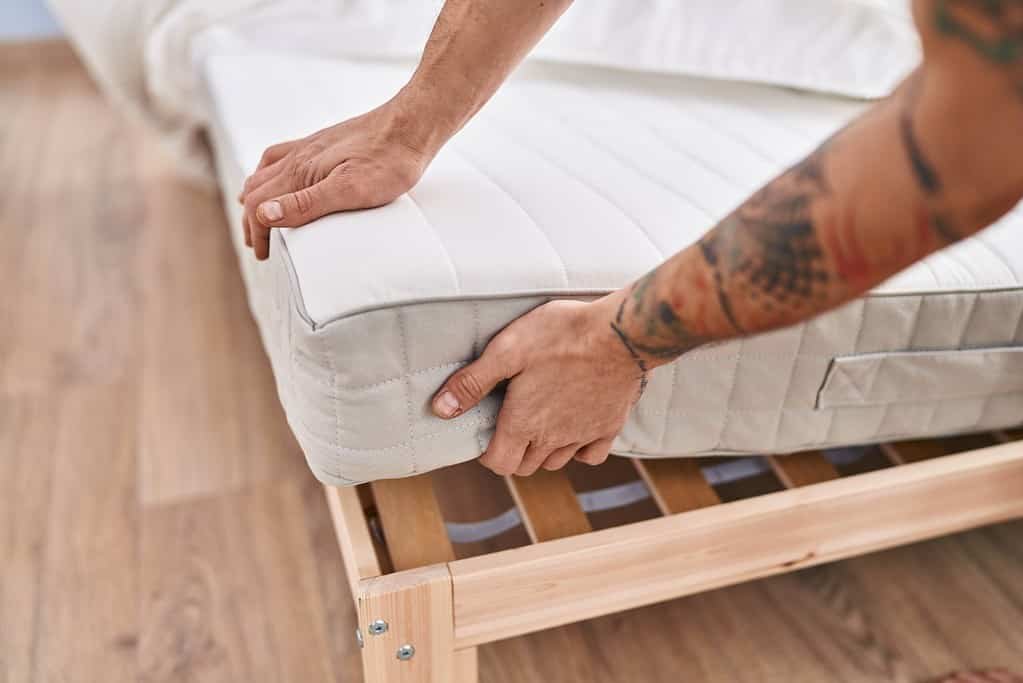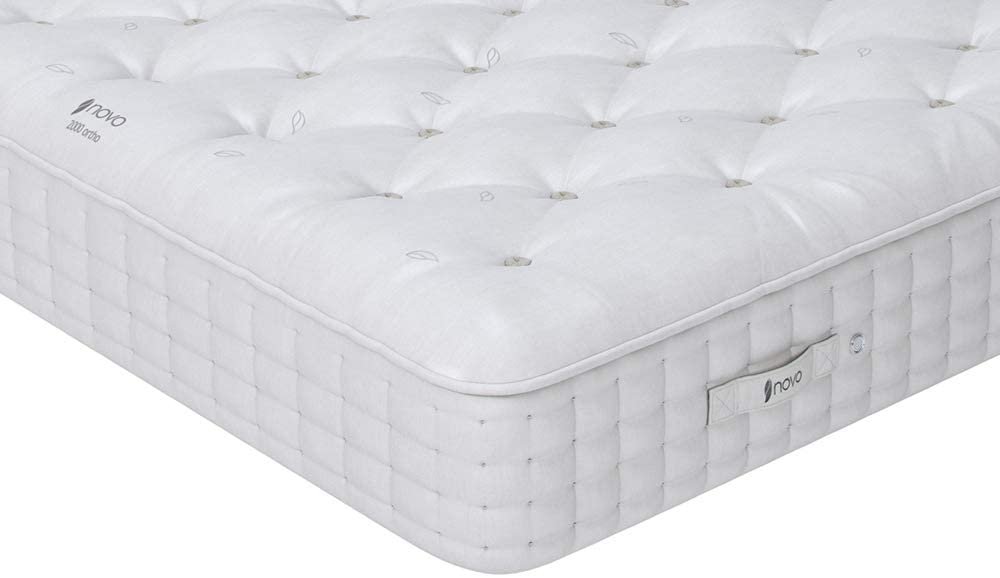Stop Snoozing on Lies: Mattress Myths Debunked!
It’s time to put some of the most common mattress myths to bed. There are many misconceptions about mattresses that have been circulating for years. These myths can lead to people making the wrong choices when buying a new mattress or maintaining their existing one. Some of the most common mattress myths include the belief that a firmer mattress is always better for your back or that you need to replace your mattress every eight years. However, these myths are not always accurate, and believing them can lead to discomfort and unnecessary expense.
This article will debunk some of the most persistent mattress myths and provide the facts you need to make informed decisions about your sleep. Whether you’re in the market for a new mattress or just looking to get the most out of your current one, read on to discover the truth about mattress myths.
Myth 1: Harder Mattresses Are Better for Your Back
Many people believe that a firmer mattress is better for their back. This myth has existed for a long time, but is it true?
The Truth about Firm Mattresses
Contrary to popular belief, a firm mattress is not always the best for people with back pain. A mattress that is too firm can cause more pain and discomfort. This is because a mattress that is too firm can put pressure on the body’s pressure points, leading to pain and discomfort. According to the Better Sleep Council, a mattress that is too firm can cause discomfort in the shoulders, hips, and back. On the other hand, a mattress that is too soft can cause the body to sink in too much, which can also lead to discomfort and pain.
So, what is the best type of mattress for people with back pain? The answer is that it depends on the individual. Some people may find that a firmer mattress provides the support they need, while others may prefer a softer mattress. The key is finding a comfortable mattress with the proper support. It’s also important to note that your sleep position can affect your best mattress. For example, if you sleep on your side, you may prefer a softer mattress that conforms to your body’s shape. If you sleep on your back, you may choose a firmer mattress that provides more support. The myth that firmer mattresses are better for your back is not entirely true. The best mattress for you depends on your individual needs and preferences. It’s essential to take the time to find a mattress that is comfortable and provides the right amount of support for your body.
Myth 2: You Need to Replace Your Mattress Every 8 Years
Many believe they must replace their mattresses every eight years, but this is not necessarily true. The life of a mattress can vary depending on several factors, including the quality of its components, how it is taken care of, and how it is used.
When to Replace Your Mattress
According to the Sleep Foundation, you should consider replacing your mattress if it is 6-8 years old, negatively affecting your sleep, noticeably saggy or damaged in certain areas, or making more noise than usual. However, these are just general guidelines and may not apply to everyone. Paying attention to how your body feels when you wake up is essential. If you are experiencing pain, stiffness, or discomfort, it may be time to replace your mattress. Another factor to consider is your weight. Heavier individuals may need to replace their mattresses more frequently than lighter individuals, as the bed may wear out more quickly under the additional weight. The decision to replace your mattress should be based on how it feels and how well you sleep. If you wake up feeling rested and comfortable, your mattress may still have some life.
Myth 3: Memory Foam Mattress Trap Heat
The Truth about Memory Foam and Heat
Memory foam mattresses have been a popular choice for many years, but some people are hesitant to buy them because of the belief that they are too hot to sleep on. However, this myth is not entirely accurate. While it is true that memory foam can retain body heat, many manufacturers have developed innovative solutions to help keep sleepers cool and comfortable.
One reason memory foam has a reputation for being hot is that it is a dense material. This density can trap heat, making it feel like the mattress is holding onto body heat. However, newer generations of memory foam have been designed to address this issue. Many now include cooling technologies such as gel-infused or open-cell foam, allowing for better airflow and heat dissipation. The belief that all foam mattresses sleep hot is also a myth. While some foams do trap more heat than others, the type of foam used can make a significant difference in how hot the mattress feels. Memory foam sleeps the warmest, latex sleeps the coolest, and polyurethane is somewhere in between.
It is also important to note that personal preferences can affect how hot or cool a mattress feels. Some people naturally sleep hot, while others sleep cold. The environment in which the mattress is placed can also make a difference. For example, a room that is too warm can make any mattress feel hot, while a cooler room can make even a memory foam mattress feel comfortable.
Myth 4: The More Coils, the Better the Mattress
Coil Count Isn’t Everything
While it’s true that a higher coil count can provide more support, it’s not the only factor to consider when choosing a mattress. The construction of the coils is also essential. A well-constructed coil system with properly spaced coils can provide better support than a mattress with a higher coil count but poorly constructed coils. Additionally, the type of coil system used can also affect the comfort and support of the mattress. For example, pocketed coils can provide better motion isolation and contour to the body than traditional innerspring coils.
It’s also important to note that a higher coil count doesn’t necessarily mean a better mattress. A mattress with too many coils can be less comfortable and supportive than one with a moderate coil count. This is because too many coils can create a bouncy surface that doesn’t correctly contour to the body. When shopping for a mattress, it’s essential to consider the overall construction of the mattress and how it will support your body. Don’t get too caught up in the coil count, as it’s just one of many factors to consider.
Myth 5: You Don’t Need a Mattress Protector
People believe that a mattress protector is an unnecessary expense. However, this is a common myth that can lead to various problems. In reality, a mattress protector is an essential item that can help to protect your mattress and ensure that it lasts for many years.
Why You Should Use a Mattress Protector
- Protects Against Spills and Stains – One of the main reasons to use a mattress protector is to protect your mattress against spills and stains. If you accidentally spill a drink or food on your mattress, cleaning and leaving a lasting stain can be difficult. A mattress protector can prevent these types of accidents from causing permanent damage to your mattress.
- Guards Against Dust Mites and Allergens – Another reason to use a mattress protector is to guard against dust mites and allergens. Dust mites are microscopic creatures that can cause allergies and asthma symptoms. A mattress protector can prevent dust mites from settling into your mattress and causing problems.
- Helps to Maintain a Consistent Temperature – A mattress protector can also help to maintain a consistent temperature in your bed. This can be especially important for people who sleep hot or cold. A protector can help regulate your body temperature, ensuring you stay comfortable throughout the night.
- Reduces Wear and Tear – A mattress protector can help reduce your mattress’s wear and tear. By preventing spills, stains, and dust mites, a protector can help extend your mattress’s life. This can save you money in the long run by reducing the need to replace your mattress as frequently.



